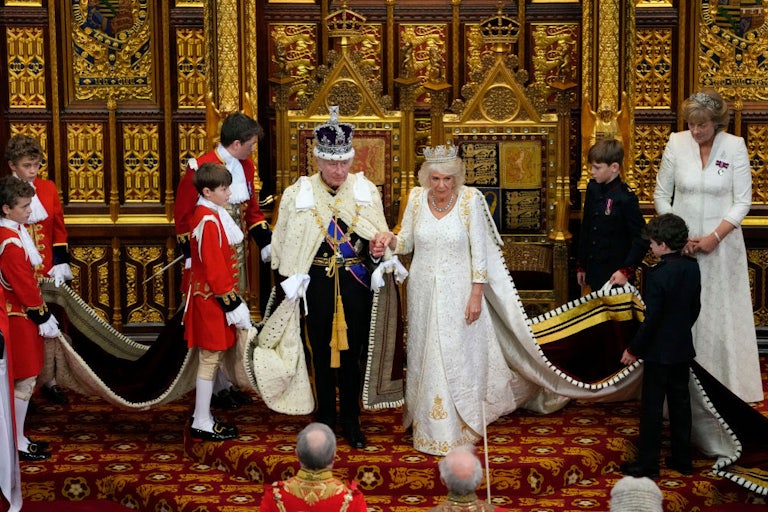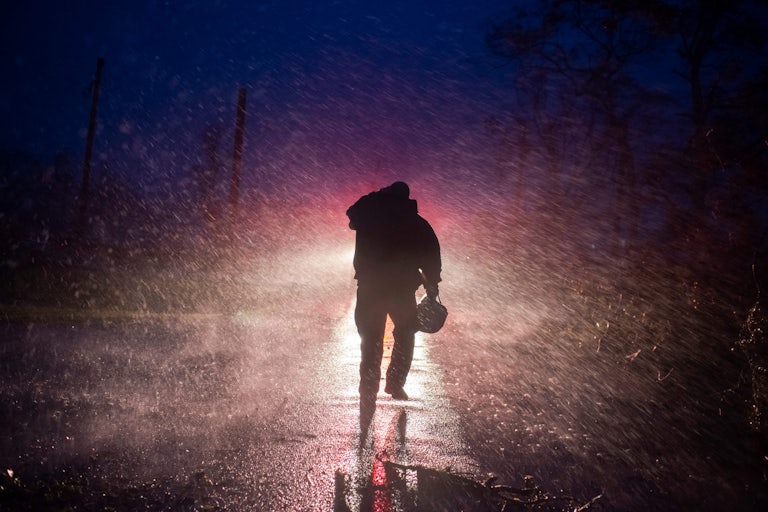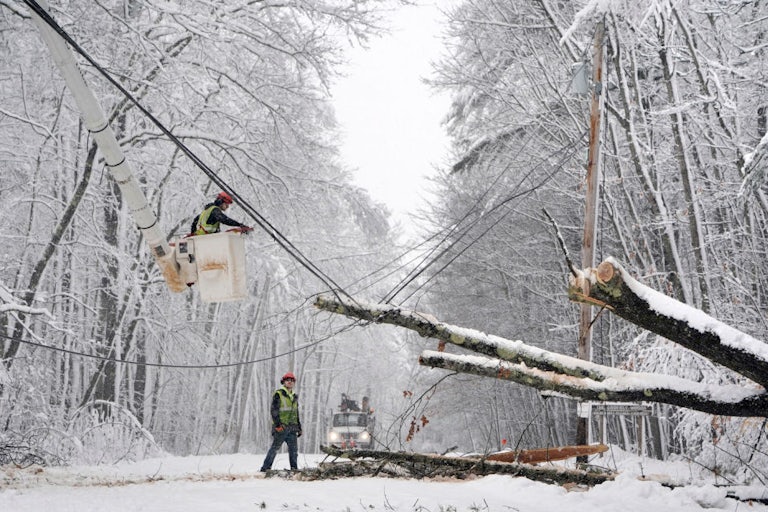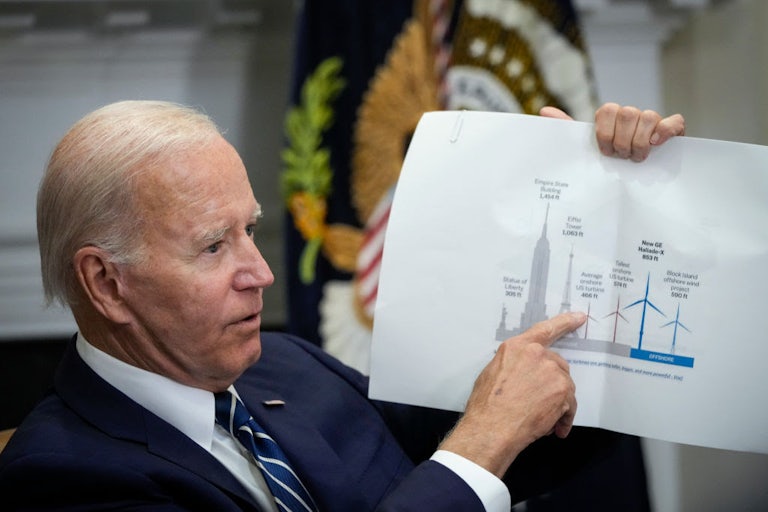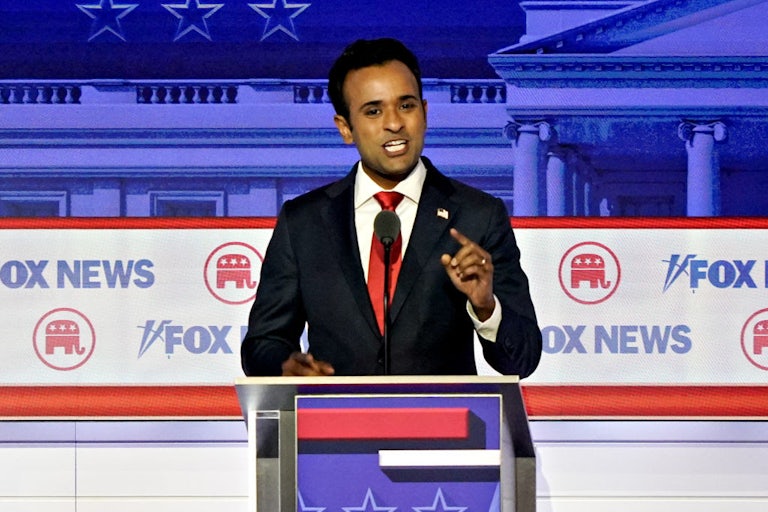Taylor Swift Has Nothing on Pope Francis
The pontiff still believes that pulpits can be used to shift political culture. The pop star mostly hasn’t used hers.

I was disappointed when news broke Tuesday that Pope Francis was canceling his appearance at the U.N. climate conference this week due to illness. First, because I wanted to hear what he might say; the Vatican’s prior climate communications have been pretty spicy, and his insistence Sunday that he would fly to Dubai for the conference—intravenous antibiotics or no—seemed to suggest the pontiff might open up a nice big can of liberation theology on COP28’s fossil fuel shills. And second, because I was really hoping to write a newsletter about the pope showing Taylor Swift how it’s done.
Swift has been criticized both for her relative political timidity and her personal carbon footprint. In 2022, she received the top spot on a list of “Celebs With the Worst Private Jet CO2 Emissions.” Then, on Friday, November 17, 23-year-old Ana Clara Benevides collapsed at a Swift concert in Rio de Janeiro, during a heat wave that shattered all-time records for Brazil and contributed to a brief first-ever rise in average global surface temperatures by more than two degrees Celsius (3.6 degrees Fahrenheit) above preindustrial levels. Benevides died later that day at the hospital.
“What does Taylor Swift owe the planet?” Emily Atkin and Arielle Samuelson asked in the Heated newsletter. The star posted a message to Instagram on Saturday, the day after Benevides’s death, explaining that that evening’s show had been postponed to keep “fans, fellow performers, and crew” safe. It did not mention the broader context of this extreme heat. And as Atkin and Samuelson persuasively argued, it probably should have.
“Extreme heat experts say Taylor Swift’s deadly concert and the Earth’s grim temperature milestone are in fact part of the same narrative,” Atkin and Samuelson wrote. “They each illustrate the consequences of ignoring scientists’ warnings about the deadly risks of climate change.” Not only do pop stars need to start factoring extreme heat into their tour plans ahead of time, but it’s increasingly clear that Swift has tremendous cultural power and ability to shift political opinion. “At some point,” climate writer and Swift fan Jeff Goodell told Atkin and Samuelson, “if she wants to be a force for good in the world, she needs to use her voice at moments like this.”
Of course, there’s a reasonable case to be made that Benevides’s death would have been a tough time for Taylor Swift to talk about climate change: Would it have come across as deflecting from the fact that the fan died at her concert? Would it have come across as hypocritical given her own oversize carbon footprint?
At the same time, Swift is a savvy communicator, and there are ways to navigate these potholes that could make her potential leadership on climate change more compelling, rather than less—especially since this isn’t about her emissions just as a pop star with a private plane but as the head of a massive international business. As a blueprint, imagine something like this:
All of us working within organizations, businesses, and governments need to think about how to adapt our processes to keep people safe in this new normal. So last night I asked the managing staff of the Eras tour to start coming up with a plan to address extreme heat and other weather events at our concerts, in order to keep both fans and staff safe as these once-unthinkable weather events become more common.
I’ve also been thinking about modifications I can make to reduce the emissions contributing to the problem. Going forward, I will be reviewing how both I and the Eras tour conduct business so that we can align our actions and the example we set with our values. I don’t know yet what that will look like. But I know we’re all up against a very scary problem right now, and I want to be part of the solution.
Pope Francis offers an interesting point of contrast here. He too risks losing fans when he gets political. In fact, instead of risking album or concert sales, he risks the unity of the Catholic Church, which is central to his mission and legacy. (Taylor Swift’s legacy as a top-selling pop star, I would argue, is already cemented.) He too travels with an entourage, albeit on a chartered plane rather than a private jet.
Yet Francis clearly thinks it’s worth speaking out about climate change. He seems to believe we’re at a crucial moment where those who have the power to speak publicly have a moral duty to do so.
So anyway, I was putting the finishing touches on this inspiring example when news of his trip cancellation broke. The pope has a very good excuse: He is quite sick, in addition to being nearly 87 years old and missing part of his lung from a teenage illness.
But the trip cancellation further lowers expectations that were already abysmally low for this summit. Joe Biden is missing the gathering for the first time of his presidency; his administration recently held the first of several oil and drilling rights sales that will proceed while COP28 is underway. Internal documents from the United Arab Emirates, reported this week by The New York Times, show that COP28 president (and head of the state-owned oil company) Sultan Al Jaber plans to use the conference to bolster oil and gas deals for the UAE. A different set of documents leaked to The Guardian shows that the meat industry intends to use the summit to promote the idea that meat is good for the environment (it isn’t—not even close).
The pope wasn’t going to single-handedly turn this pablum-and-disinformation factory of a conference into a productive meeting. But a voice like his—the papacy has traditionally been an “establishment” position perceived as speaking from the global north—calling bullshit on rich nations and their corporations would, at the very least, have been a refreshing break with COP tradition. The pope still believes a pulpit can be used to sound the alarm, shift the culture just a fraction of an inch, and make political change more likely. Imagine what it might look like if more global figures with a pulpit—like Taylor Swift—believed similarly.
Good News/Bad News
![]()
Programs designed to help coal workers transition to good jobs that are more sustainable are getting a fresh infusion of cash, the Energy Department announced this week.
![]()
It’s looking like 2023 may be the first year when average global temperatures rise to 1.5 degrees Celsius above preindustrial temperatures. This was the original limit set in the Paris Agreement, the level of warming countries would strive to keep the world below. A single year beyond 1.5 degrees, a new Vox piece points out, doesn’t mean that limit has been crossed definitively. But it’s a milestone that many will rightly interpret as an urgent call to action.
Stat of the Week
12.9 million barrels
That’s how much crude oil the United States is on track to produce by the end of the year—“more than double what was produced a decade ago,” The Guardian points out—as the country’s representatives head to the U.N. climate conference this week. The U.S. is set to break records for both oil and gas production.
What I’m Reading
The libertarian developer looming over West Maui’s water conflict
Invasive grasses like the ones growing on land belonging to Christian real estate developer Peter Martin may have played a role in Maui’s recent, devastating wildfires. Amazingly, that’s not the most striking detail in this piece, which explores the battle between Martin and Native Hawaiians like Ku’uleialoha Palakiko, as the latter fight to maintain access to water while Martin’s developments drain the land dry. Who knows why people like Martin talk to reporters if they can’t refrain from ridiculous statements like, “I’m not comparing these people to Hitler; I’m just saying.…” But talk he did. And the results are something else.
Martin says he didn’t set out to make Launiupoko a luxury development, but that its value spiked after Maui County imposed rules that limited large-scale residential development on agricultural land. Martin’s development was grandfathered in under those restrictions, and demand for large homes drove up prices in the area. He says criticism of swimming pools and landscaped driveways is rooted in envy.
“People come over and make their land beautiful by using water,” he said.
Martin also maintains that there’s more than enough water for everyone, but that doesn’t seem to be the case. Annual precipitation around Lāhainā declined by about 10 percent between 1990 and 2009, drying out the streams near Launiupoko, and now Martin sometimes can’t provide water to all his customers during dry periods.
Read Anita Hofschneider’s and Jake Bittle’s article at Grist.
This article first appeared in Life in a Warming World, a weekly TNR newsletter authored by deputy editor Heather Souvaine Horn. Sign up here.


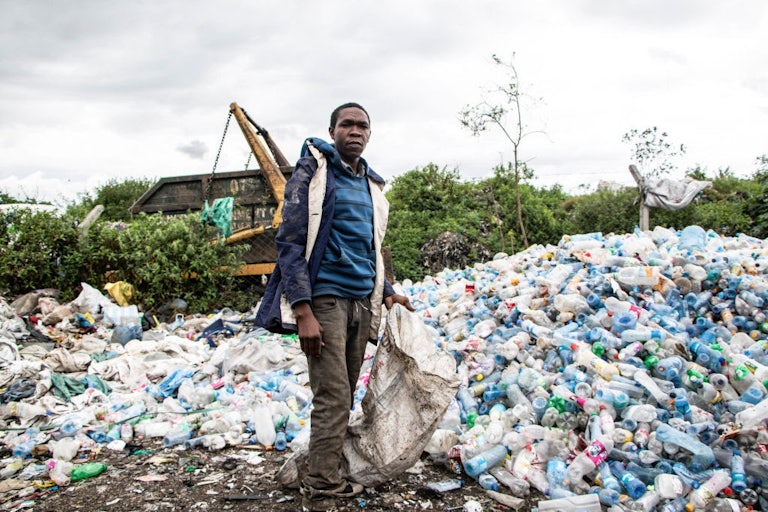
.png)
